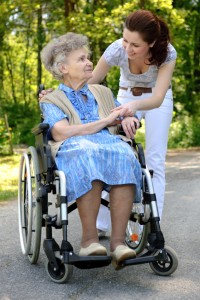The Zika virus has been in the news a lot lately as the Olympics draw close. The Zika virus has recently spread in Brazil, where the Summer Games are being held, and many people are worried that by having the games here, the disease will easily spread throughout the rest of the world afterward. And while most of the focus is on how the disease impacts pregnant women and the children they carry, there is also a risk to the elderly, according to the CDC. Being aware of what that risk is, and what, if any, preventative steps you can take to help your family is wise–just in case. And if your loved one receives in-home care, you should ensure that their caregivers know these things to. Hopefully there will be no need to do so, but knowing the facts and adjusting your family’s lifestyle to stay safe is always a wise choice.
First, know that the spreading of the disease on a pandemic level is not very likely. There have been a few isolated cases here and there in the United States, but a full blown emergency is not that likely. Every single one of the cases in the U.S. were travel related, and probably were not spread after these people returned to the U.S. The disease is spread by mosquitoes, and it occurs primarily in Central and South America. The CDC has commented that it is possible for it to spread to the Southern portion of the United States, though. Most people that get the virus never even know it because they don’t show symptoms. However, if symptoms are shown, they include rash, fever, achy body parts, and red eyes. If you are a caregiver for an elderly adult, these are things you should be looking for, especially if travel has recently occurred.
If your loved one does show signs of the Zika virus, get them to a doctor immediately. These symptoms are kind of generic in nature, but if you truly suspect that the Zika virus is a factor, it is far better to be too cautious than not cautious enough. Because the elderly sometimes have weaker immune systems, they often find themselves at greater risk of infections and the symptoms that would be associated with the virus can be far more severe in them than in the younger population. And while there is no evidence that this is also going to be the case if someone older contracts the disease, the likelihood of it happening is high. Several people who have had the Zika virus have gone on to develop Guilllain-Barre disease, which is a paralysis disorder, and many physicians believe that the elderly would be more likely to get this than the general population.
There are still many unknown factors when it comes to the Zika virus, and although the chances of contracting it here in the U.S. are very slim, it’s still something that caregivers should be aware of and educate themselves on.
The post Zika Virus and the Elderly appeared first on Paradise In-Home Care.

No comments:
Post a Comment